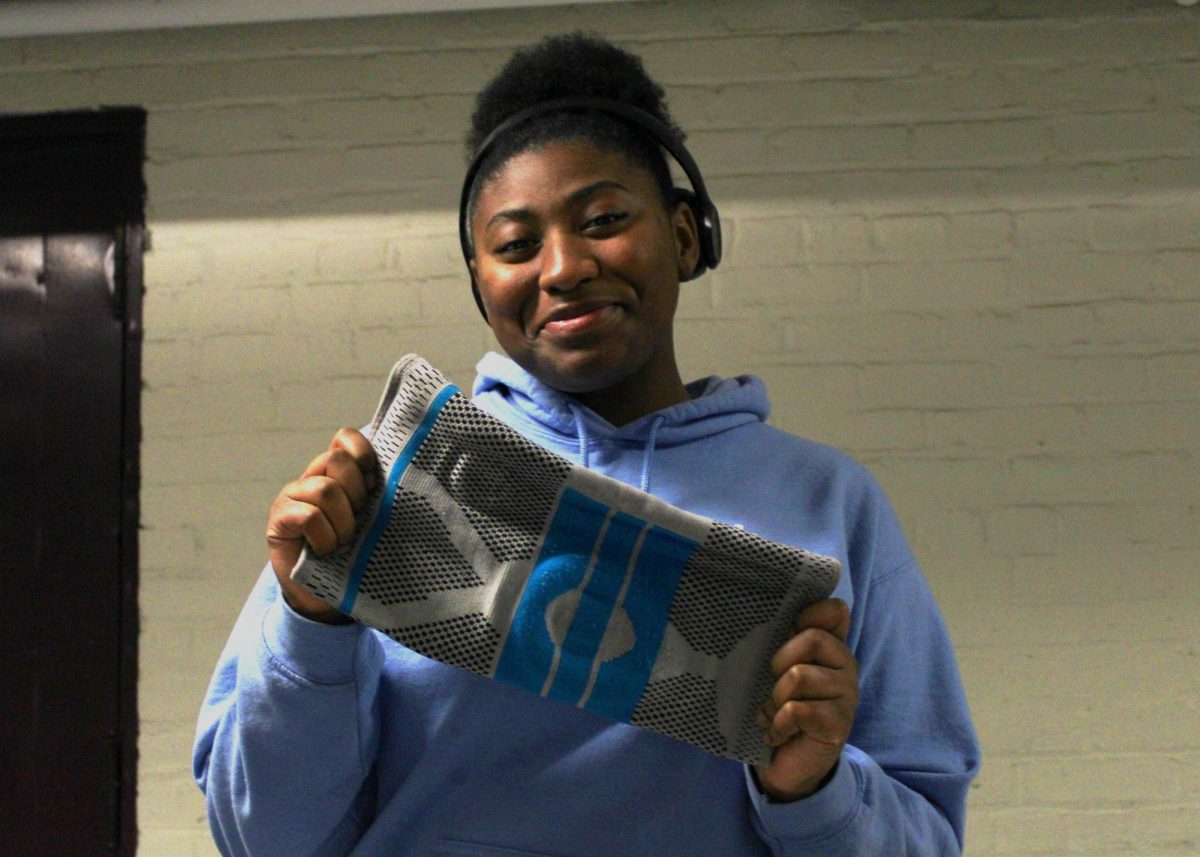Athletes, no matter what sport, commonly link superstitions to their gameplay. Whether team or personal, these rituals are deeply ingrained regardless of the sport, team or level of gameplay.
Specific superstitions are extremely varied — ask anyone at Boston Latin School and they will all have different responses. They, however, are all similar in one way: their superstitions are the one constant on game days, and they all believe that if they do not follow through with them, they will not perform well.
A common belief is that an athlete can only have one superstition, but Natalie Wilt (I), a varsity cheer team member, easily disproves this notion with her extensive list. She has the same drink the morning of her competition, does her makeup and hair in the same order and does a handshake with each of her friends on the team. During award assemblies, she goes on stage with the same person, sits next to the same people and crosses her arms right over left to hold hands with those next to her. While they may seem excessive or inconsequential to others, for Wilt they are essential for her performance at competitions. She has been following these superstitions at every single competition for seven to eight years, adding more as time goes on.
Another athlete is varsity tennis player Halina Nguyen (III). As four is her lucky number, her superstition is based on drawing out the luck from that number. “Before I serve for tennis, I bounce the ball four times. When we are switching sides for games, I pause and take four deep breaths before standing up,” Nguyen explains. “If I win in a tournament and do well in an outfit, then I’ll wear it the next tournament too until I lose and then switch.”
Nguyen’s superstitions differ from Wilt’s, but even within the wide range, there are some patterns. Serena Williams, a former American tennis player, has a similar superstition. She, like Nguyen, bounces the ball five times before her first serve. Some of her other superstitions include bringing her shower sandals to the court and wearing the same pair of socks during tournament runs, similar to Nguyen’s particular outfit superstition. These clothing-related superstitions span across sports as National Basketball Association player, Michael Jordan, wore the same pair of University of North Carolina shorts under his uniform in every game in college.
Similar to Wilt’s morning drink, another common form of superstition among athletes is eating habits. A member of the varsity football team, Charlie Hauck (II), eats “coleslaw or else [they will] lose the game.” This superstition boosts camaraderie and tradition for the team, promoting a positive attitude. When one member of the football team began doubting eating coleslaw, the rest of Hauck’s teammates showed their support, insisting that this superstition is a determining factor in their success.
There must be some truth in these superstitions, right? Perhaps coleslaw provides an extra boost of energy needed in the fourth quarter?
There must be some factual basis. After talking with Nguyen about her ball bouncing, she reveals, “It makes me feel like I have more control. It becomes a mental thing. If I forget to do something or do something different, I lose the constant and begin to look for the ‘wrong.’”
Athletes may have superstitions to establish a sense of control in order to rid any anxiety in moments they feel helpless. They need support to rely on when they feel things are going out of their control or have the potential to go wrong.
Different athletes believe in unique superstitions. While it is not known for sure if coleslaw, morning drinks or bouncing a tennis ball four times improves gameplay, each one plays its role in establishing a sense of comfort and security for a player before their competition.
Categories:
BLS Athletes are Super (Stitious)
By Dimitra Minasadis (III), Contributing Writer
January 22, 2024
0







